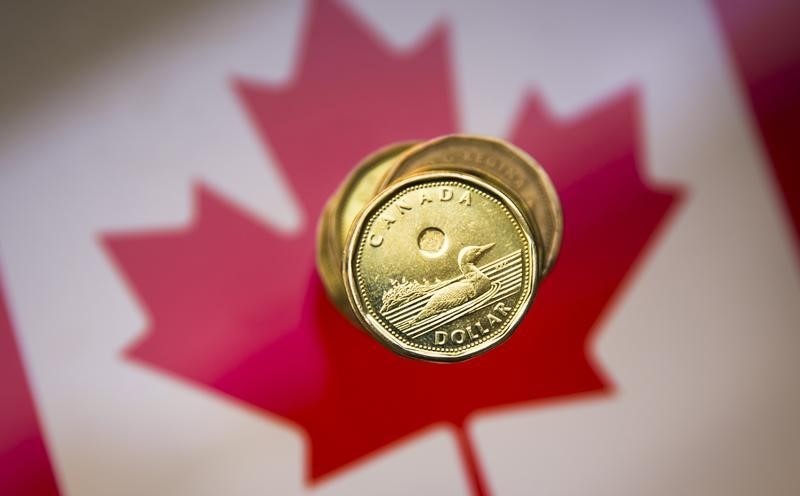(Adds strategist comment, details; updates prices to close)
* Canadian dollar ends at C$1.3941, or 71.73 U.S. cents
* Bond prices marginally higher across the maturity curve
By Alastair Sharp
TORONTO, Jan 4 (Reuters) - The Canadian dollar weakened by
the most in more than two weeks against its U.S. counterpart on
Monday, hurt by a sharp fall in Chinese shares that weighed on
commodity-linked currencies and global stock markets.
The loonie, as Canada's currency is colloquially known,
slumped to its lowest level against the Japanese yen CADJPY=R
since December 2012 as traders piled into the traditional
low-risk currency after disappointing Chinese factory data
sparked a selloff.
Chinese factory activity contracted for the 10th month
running in December, adding to headwinds for commodity exporters
such as Canada.
Canada's manufacturing sector meanwhile contracted for the
fifth straight month as activity fell to a record low in
December, data showed.
The price of oil, a major Canadian export, fell after an
early rally as concern about Middle East tensions gave way to
worries about slowing global economic growth. O/R
"The year is starting out no different than the way we left
it, with a possible domestic rate cut, the potential for
underpriced U.S. hikes, and then weak oil," said Darcy Browne,
managing director of foreign exchange sales at CIBC Capital
Markets.
The Canadian dollar CAD=D4 ended the session trading at
C$1.3941 to the greenback, or 71.73 U.S. cents, much weaker than
Thursday's close of C$1.3840, or 72.25 U.S. cents.
The currency's traded between C$1.3815 and C$1.3983. It hit
its weakest level in more than 11 years on Dec. 18 at C$1.4003.
"The trend is still there until it's broken, and we don't
really see anything on the horizon that's going to change
people's minds in the near-term," CIBC's Browne said, adding he
expects the currency to average C$1.42 in the first quarter.
The loonie weakened by 16 percent in 2015, its worst
performance since the global financial crisis of 2008.
Bank of Canada Governor Stephen Poloz will speak on Jan. 7
in Ottawa, the last scheduled appearance by a Bank of Canada
policymaker before an interest rate announcement and Monetary
Policy Report on Jan. 20.
The market has been leaning toward further rate cuts in the
face of depressed crude oil prices and loss of momentum for
growth. BOCWATCH
Canadian government bond prices were marginally higher
across the maturity curve, with the two-year CA2YT=RR price up
2 Canadian cents to yield 0.468 percent and the benchmark
10-year CA10YT=RR also rising 2 Canadian cents to yield 1.395
percent.
November trade data is scheduled for Wednesday and the
December employment report is awaited on Friday. ECONCA
